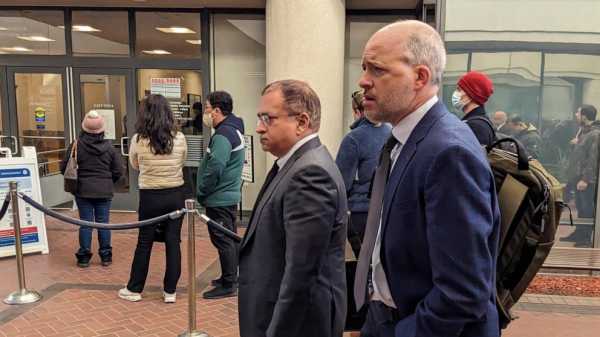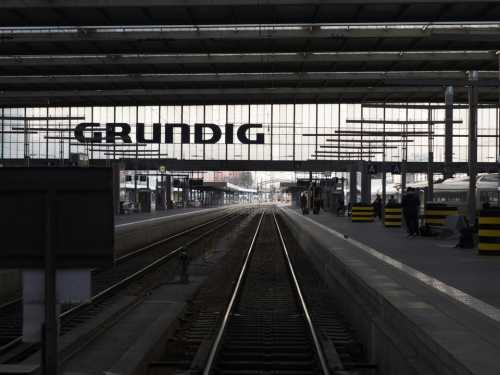
SAN JOSE, Calif. — Former Theranos executive Ramesh “Sunny" Balwani returned to federal court Friday in a last-ditch attempt to stay out of prison while appealing a jury's verdict convicting him of orchestrating a blood-testing hoax with his former boss and lover, Elizabeth Holmes.
Besides overseeing arguments about Balwani's attempt to delay the start of his nearly 13-year prison sentence, U.S. District Judge Edward Davila also heard a vigorous debate about how much money Balwani should pay investors and patients duped by the Theranos blood tests that never worked as promised. The deceit resulted in Balwani's conviction on 12 counts of fraud and conspiracy.
Davila didn't issue any rulings at the end of the 90-minute hearing. His decision on whether Balwani can remain free on bail while he appeals his conviction, however, is likely to come soon. That's because Balwani, 57, is scheduled to report to prison in Lompoc, California, on March 15.
The judge said he doesn't expect to decide on the question of how much Balwani should pay in restitution until another hearing on the same issues is held for Holmes, Theranos' disgraced CEO, on March 17.
Holmes, 38, also is seeking to remain free on bail while she appeals her conviction on four counts of fraud and conspiracy. She is scheduled to report to a prison in Bryon, Texas, on April 27 to begin a sentence of more than 11 years.
In Friday's hearing, one of Balwani's lawyers sought to deflect the blame for Theranos' eventual collapse to Holmes. In her presentation, Amy Walsh asserted Theranos still had $350 million in cash and intellectual property worth about $100 million in May 2016 when Holmes fired Balwani as the company's chief operating officer and ended their romantic relationship.
“When he walked out the door, the company was extremely valuable," Walsh said in Balwani's defense.
Davila seemed skeptical of that rationale, asking Walsh: “Are you saying his conduct was completely divorced from Theranos' demise?"
Federal prosecutors are seeking a court order that would saddle Balwani with a restitution bill of nearly $900 million — a figure that would likely be largely symbolic. It would also be far larger that than the $120 million loss estimate that Davila used in calculating Balwani's prison sentence.
Prosecutor Robert Leach openly scoffed at Walsh's contention that Balwani should owe nothing, calling it a “remarkable position."
The two sides also painted radically different pictures in their arguments about whether Balwani should be allowed to remain free during his appeal.
Balwani attorney Mark Davies alleged that government misconduct in the presentation of evidence during Balwani's trial makes it likely he will prevail in the appeal of his convictions. But federal prosecutor Kelly Volkar repeatedly denied any wrongdoing.
Davies also stressed Balwani's compliance with all bail requirements since he was indicted in 2018 as evidence that he isn't a flight risk. The lawyer also pointed to Balwani's non-violent history and past charity work in India as evidence he poses no danger to the community.
Volkar suggested Balwani may have more incentive to flee with his lengthy prison sentence now less than a month away and argued he remains a potential menace.
“Damage can come in the form of economic harms as much as it can come in the form of violent harm," Volkar said.
Sourse: abcnews.go.com






